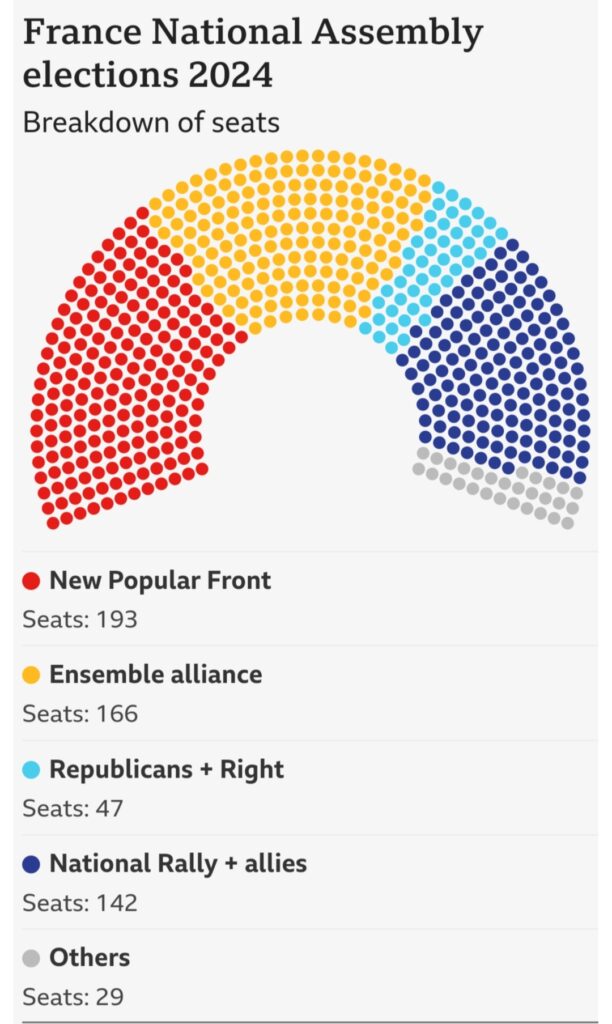More than 100,000 people protested across France on Saturday against the appointment of centre-right politician Michel Barnier as the new prime minister.
His appointment follows open elections in which the left-wing New Popular Front (NPF) bloc won the most seats.
The protests were called by trade unions and NPF members angry that their candidate for prime minister had been rejected by President Emmanuel Macron.
Barnier, a former Brexit negotiator, said he was open to forming a government made up of politicians from all over the political spectrum, including the left.
The Interior Ministry said 110,000 people demonstrated across the country on Saturday, including 26,000 in Paris, but one protest leader claimed the number was 300,000.
Veteran firebrand Jean-Luc Mélenchon of the radical party Indomitable France called for “the strongest possible mobilization” in the form of a nationwide protest march.
Around 130 protests are planned, the largest of which began in central Paris on Saturday afternoon.
Mr Mélenchon took part in the Paris protests, speaking at the rear of a float saying “Stop Macron’s coup for democracy”.
Demonstrators also used slogans such as “denial of democracy” and “stolen elections”.
Left-wing parties are angry that their prime ministerial candidate, Lucy Castets, was rejected by Mr Macron, who said she had no chance of surviving a confidence vote in parliament.
Barnier could survive the confidence vote because the far-right, which also won many seats, has said it would not automatically vote against him.
This has led to criticism that his government would be dependent on the far-right.
“We have a prime minister who is totally dependent on the National Party,” Castets said.
Barnier visited a children’s hospital in Paris on Saturday afternoon, stressing the importance of public services, but told health workers that the government “is not going to perform miracles,” local broadcaster BFMTV reported.

Against the backdrop of the protests, the new prime minister is focused on forming a new government.
After meeting with leaders of the right-wing Republicans and the president’s centrist group, Ensemble, he said the talks had gone very well and were “full of energy.”
Some on the left blame themselves for Barnier eventually becoming prime minister.
Anne Hidalgo, the Socialist mayor of Paris, pointed out that the president had considered former Socialist prime minister Bernard Cazeneuve for the post, but he was rejected by his party.
Karim Bouhamran, another Socialist mayor, blamed the stubbornness of other parts of the left-wing coalition. “The path they chose was 100 percent or nothing, and here we have nothing.”

